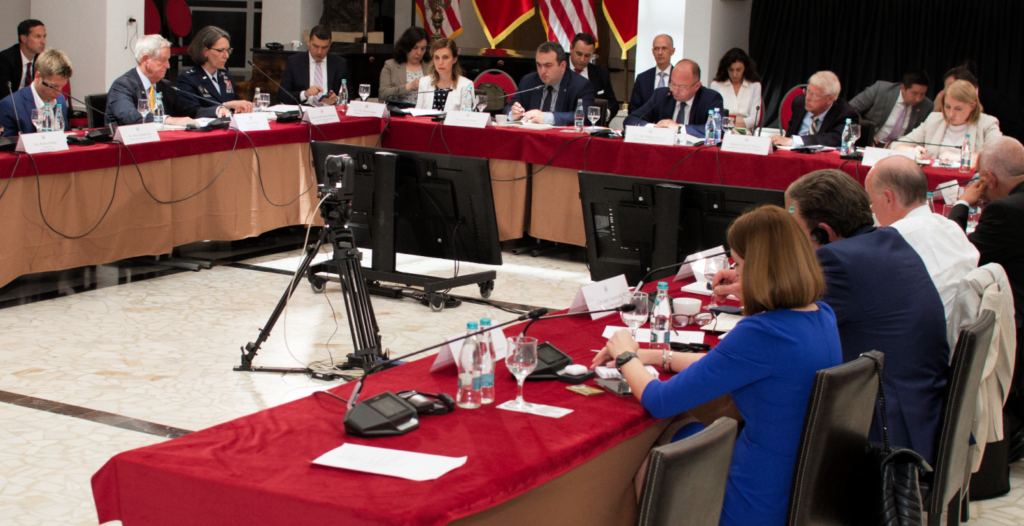On June 23, 2016, a majority of British citizens voted to leave the European Union (EU), in the so-called BREXIT referendum.
Beyond its direct impact on both the United Kingdom (UK) and the European Union (EU), BREXIT has numerous implications for the entire OSCE region. Recent events in the U.S. Congress and European Parliament suggest that parliamentarians believe the impact could range from a weakened EU stance on human rights, to a stronger transatlantic alliance on economic matters, to little or no change in current U.S., EU, and OSCE security relationships.
Over the past few weeks, British Members of Parliament (MPs) have begun to engage in the arduous task of considering legislation to disentangle the UK from the EU.
What the Legislation Does
The legislation, called the European Union (Withdrawal) Bill, would repeal the 1972 European Communities Act, which brought the UK into the EU. Adoption of the withdrawal bill would allow EU law to be transposed into UK law to ensure continued consistency with EU rules and regulations on matters ranging from trade to workers’ rights following BREXIT.
In addition, the bill would also empower Ministers and other government officials to make changes to UK law without the approval of Parliament in special cases, with the goal of streamlining bureaucratic processes.
Ideally, the bill would be adopted before March 2019 when the UK is scheduled to leave the EU.
Challenges
However, numerous complications surround passage of the bill. First, parliamentarians are considering the bill even though a deal has yet to be finalized for the UK to leave the EU. Talks between the UK and the EU set for December continue to focus on how much the UK is obligated to pay the EU upon departure; the new legal status of EU citizens currently living and working in the UK, and vice versa; and trade and regulatory borders, in particular with Northern Ireland.
Currently, it appears that border concerns with Ireland may have been resolved, costs may amount to close to 40 billion pounds, rights for EU and UK citizens will be preserved, and that the UK will also continue to be under the jurisdiction of the European Court of Justice… all of which should be officially determined during talks next week.
Other issues also impact passage of the bill. Parliamentarians are currently legislating without “BREXIT impact assessments” – information they say they need to forecast how BREXIT may impact a variety of sectors from industrial to finance.
Some MPs object to the legislation because empowering Ministers to make changes without the approval of Parliament could circumvent the standard checks-and-balances process, leading to weak legislation. Other MPs want to ensure European Court of Justice and some other rules will still apply to the UK during the years it is expected it may take to transpose and/or write new laws to take the place of +20,000 EU laws, regulations, and other legal instruments that would otherwise cease to exist following BREXIT.
While many of these issues remain in question until a final agreement can be reached, ultimately UK MPs have the final vote on the UK’s withdrawal from EU. As such, parliamentary perspectives on BREXIT continue to be front and center.




